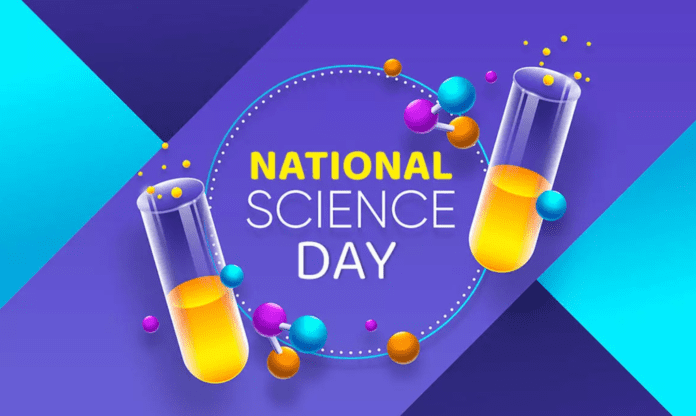Unveiling India‘s Scientific Journey: National Science Day and Beyond.
1 min read 2024-02-28, 05:00 PM IST
Summary
|
National Science Day
In India is a celebration of scientific achievement, curiosity, and innovation. Held annually on February 28th, it commemorates the discovery of the Raman Effect by the Indian physicist Sir C.V. Raman in 1928. This pivotal moment in India’s scientific history marked the country’s entry into the global scientific community and laid the foundation for future advancements. As we delve into the significance of National Science Day and explore India’s scientific journey, we uncover a tapestry of discovery, perseverance, and the relentless pursuit of knowledge. (also read: Ratha Saptami 2024).
Sir C.V. Raman and the Raman Effect
- Biography of C.V. Raman: Explore the life and work of Sir Chandrasekhara Venkata Raman, highlighting his early life, education, and scientific contributions.
- Discovery of the Raman Effect: Discuss the experimental setup and observations that led to the groundbreaking discovery of the Raman Effect, showcasing its importance in the field of physics.
- Legacy and Impact: Examine the global impact of Raman’s discovery, both in terms of scientific advancements and its recognition of Indian scientific prowess.
Evolution of Science in Ancient India
- Ancient Indian Contributions: Uncover the remarkable contributions of ancient Indian scholars in various scientific fields, including mathematics, astronomy, medicine, and metallurgy.
- Scientific Texts and Treatises: Explore notable ancient texts such as the Vedas, Upanishads, and works by scholars like Aryabhata, Brahmagupta, and Sushruta, highlighting their scientific insights and methodologies.
- Legacy and Influence: Discuss the enduring legacy of ancient Indian science and its influence on subsequent generations of scientists, both in India and around the world.
Modern Science in Independent India
- Post-Independence Scientific Initiatives: Trace the development of scientific institutions and initiatives in independent India, including the establishment of the Council of Scientific and Industrial Research (CSIR) and the Indian Space Research Organisation (ISRO).
- Pioneering Scientists: Profile key figures in India’s post-independence scientific community, such as Homi Bhabha, Vikram Sarabhai, and Satyendra Nath Bose, highlighting their contributions to nuclear physics, space exploration, and theoretical physics.
- Technological Milestones: Explore significant milestones in India’s scientific and technological development, including the successful launch of India’s first satellite, Aryabhata, in 1975, and the Pokhran nuclear tests in 1974 and 1998.
Challenges and Opportunities in Indian Science
- Funding and Infrastructure: Examine the challenges faced by Indian scientists, including limited funding, outdated infrastructure, and bureaucratic hurdles, and discuss potential solutions to address these issues.
- Brain Drain and Talent Retention: Analyze the phenomenon of brain drain and its impact on India’s scientific workforce, as well as initiatives aimed at retaining and attracting talented scientists.
- Collaborative Research and International Partnerships: Highlight the importance of collaborative research initiatives and international partnerships in fostering scientific exchange, knowledge sharing, and innovation.
Empowering the Next Generation of Scientists
- Science Education and Outreach: Discuss the importance of science education and outreach programs in nurturing scientific curiosity and fostering a culture of innovation among young learners.
- STEM Initiatives: Highlight various STEM (Science, Technology, Engineering, and Mathematics) initiatives and competitions aimed at promoting interest in science and encouraging students to pursue careers in STEM fields.
- Role Models and Inspirational Figures: Profile contemporary Indian scientists and innovators who serve as role models and sources of inspiration for aspiring young scientists.
National Science Day serves as a poignant reminder of India’s rich scientific heritage and its ongoing journey towards excellence in science and technology. From the pioneering discoveries of Sir C.V. Raman to the modern-day achievements of Indian scientists and innovators, the story of Indian science is one of resilience, ingenuity, and relentless pursuit of knowledge. As we celebrate National Science Day and look towards the future, let us reaffirm our commitment to fostering a vibrant scientific ecosystem that empowers future generations to push the boundaries of discovery and innovation.

